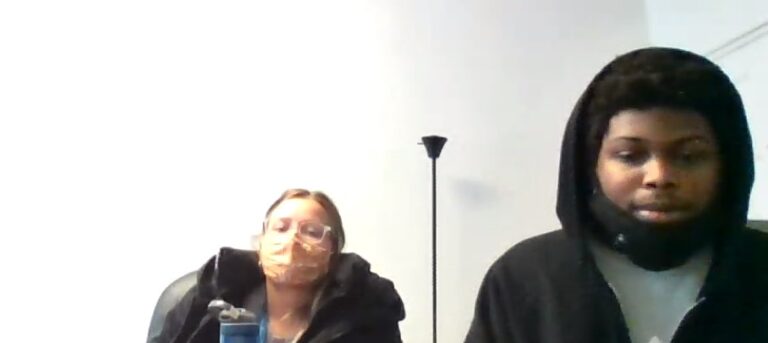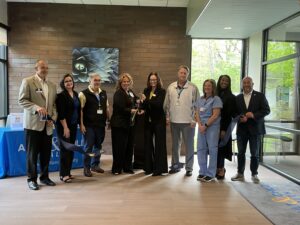When Cory Britton was 5 years old, he already knew he was different from the other kids. But not in a physical or obvious sense. It certainly didn’t look like a homeless life awaited him.
“I felt I was different from everyone else,” said Cory, who’s now 22. “My mood swings, and how I would cope with different things. My mom didn’t know how to deal with it. She told me to pray and hope for the best. It was pretty rough. I didn’t understand me and what was going on, but I knew something was wrong.”
RELATED CONTENT: Overcoming Trauma: The Power Behind Skills Development and Therapy

Cory was looking up ADHD at age 10, thinking that might have been his issue. He came from a family that encouraged prayer and working through problems. That wasn’t working for Cory.
By age 17, he was diagnosed with depression. He received a bipolar disorder diagnosis shortly thereafter.
Cory was well-adjusted enough that he was able to enroll at Central State University in Wilberforce, Ohio, but that didn’t last. He dropped out of school, and was homeless for about four and-a-half months.
RELATED CONTENT: A&C Launches Telehealth to Serve Wheeler Mission Guests
How A&C helped Cory and other homeless clients
Eventually, Indianapolis’ Coordinated Entry System referred Cory to A&C, where he met our Assertive Community Treatment (ACT) team. The group was formed in 2020 and serves clients with significant mental health needs that have impairment in their functioning. “It’s a barrier to them being able to access things that you and I would take for granted,” said Tiffanie Barnes, Team Leader.
The team currently has 39 clients, including Cory. The team of nine has helped house about half of its caseload so far. “It’s amazing that we are able to do that,” Barnes said. “We want to continue to introduce people to housing and we would like to grow our caseload and offer our services to more individuals.”
Each client is a team effort, but Alison Ruess and Abigail Wainman work most closely with Cory, and both have been amazed at his progress. “It’s been inspiring to see Cory reach a goal,” Ruess said. “He wanted to spend more time with his mother and he’s spent multiple weekends with her since then. He’s working with the employment specialist in the team to help him find a job.”

“It’s very inspiring,” Wainman said. “I’m the same age as Cory and I could not imagine going through what he has been through. I love working with Cory.”
The team helped Cory obtain an ID and Social Security card, but his therapists credit him with most of the improvements he’s made.
“He’s been meeting us consistently on a weekly basis to do these IMR (Illness, Management and Recovery) sessions,” Ruess said. “Cory has done his home practice where you talk about what you’ve learned with someone. He’s really accomplished all of that.”

What’s next for Cory
Now, Cory is affiliated with the Blue Triangle Program, which is designed to provide safety, security and comprehensive health care for people who are experiencing homelessness, and help them rebuild their lives. He’s looking for permanent housing, and he eventually wants to return to college and start his own marketing firm.
“Just be open to it,” he said, offering advice to anyone who’s homeless and considering getting help. “When I first heard about it, I was very reluctant because I don’t like talking to people as much. It can change your life and put you in better places. They help with anything and everything I need.
“I was homeless before coming here. That really shaped me a lot. I was on the street for 4.5 months. When I first met with A&C, they were commending me on how strongly I handled the situation. I definitely had help, but no one’s supposed to survive in those circumstances. I came out stronger than I was.”
Do you know someone who’s experiencing homelessness? Our Homeless and Housing Resource Team could help. Call 1-877-882-5122 to learn more.
Would you like to donate to our mission? Here’s how you could help our homeless or other programs.






